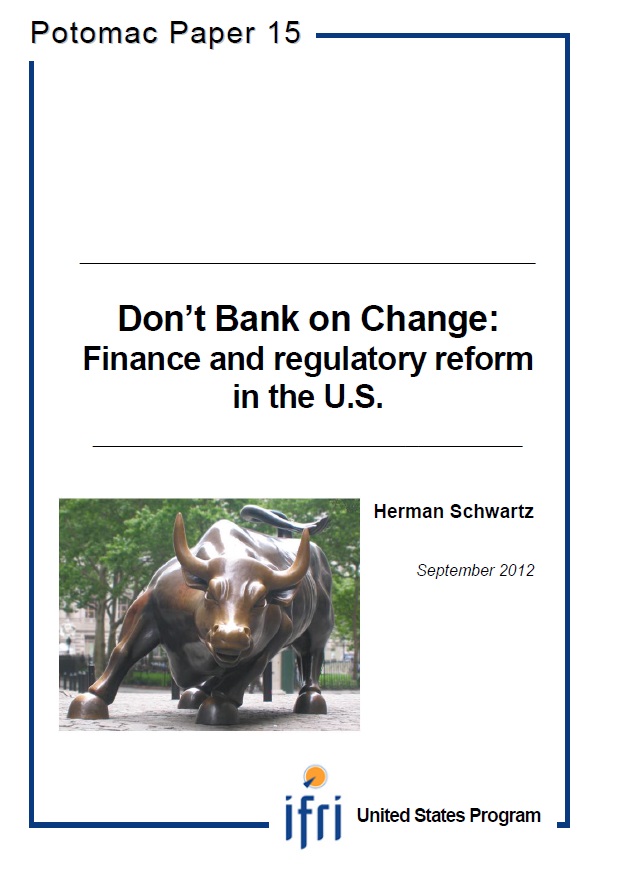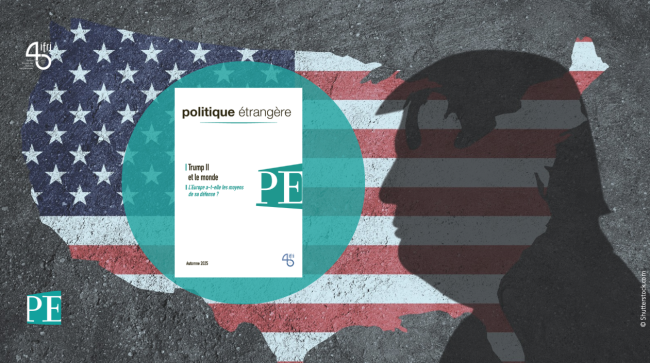Don't Bank on Change: Finance and Regulatory Reform in the U.S.

As a number of provisions of the Dodd-Frank Act are entering into force, five years after the beginnings of the financial crisis, Professor Herman Schwartz explains how the U.S. banking community will continue to hurt the interests of the American economy and political system.
After the 1929 financial crash that caused the Great Depression, the financial system in America was kept safe through a system of formal and informal regulation: the 1933 Glass-Steagall Act kept commercial banks apart from investment banks, and all banks apart from insurance companies; federal housing corporations handled mortgage loans and channeled them towards pension plans, keeping these long-term assets apart from short-term financial instruments managed by banks, thus avoiding “maturity mismatches”.
Following years of lobbying, financial companies finally achieved global de-regulation: the 1999 Gramm-Leach-Bliley Act removed the firewall between banks and insurance companies. The 2000 CFMA Act deregulated most financial instruments, such as CDS and CDOs, and allowed banks to buy long-term assets with short-term money. Tradable assets multiplied, bringing massive profit to financial institutions based on unsound situations. When risky speculation on housing loans finally met with default, this spread to the entire financial system in a series of bank runs, giving way to the major financial crisis of 2007-2008. The federal government responded by bailing out a number of failed institutions that were “too big to fail”.
The Dodd-Frank Act of 2010 endeavors to re-regulate the system: it plans to re-segregate the different types of financial institutions under the “Volcker rule”; it includes better consumer protection, through for instance better disclosure of financial risks; and proposes many excellent regulation provisions under the authority of the Financial Stability Oversight Council.
The U.S. banking community, however, has influence not only over U.S. politicians both Republican and Democrat (through its ability to fund their campaigns), but also on the Federal Reserve system, as well as on most private businesses in the country. Dodd-Frank is therefore faced with intense lobbying for the watering-down and delaying of its provisions. Prospects for an efficient implementation are at best fragile. Additionally, the current limitation of maturity mismatches seems to be only fear-induced and will in all likelihood not last very long.
In a stern and rather pessimistic appraisal, Professor Herman Schwartz explains how the U.S. banking community will continue to hurt the interests of the American economy and political system.

Available in:
Regions and themes
ISBN / ISSN
Share
Download the full analysis
This page contains only a summary of our work. If you would like to have access to all the information from our research on the subject, you can download the full version in PDF format.
Don't Bank on Change: Finance and Regulatory Reform in the U.S.
Related centers and programs
Discover our other research centers and programsFind out more
Discover all our analysesBrazil One Year Away from the October 2026 General Elections
Brazil’s general elections will be held on October 4, 2026, to elect the president, vice-president, members of the National Congress, governors, deputy governors and state legislative assemblies. For the presidential and gubernatorial elections, a second round will be held on October 25 if no candidate obtains a majority of the votes in the first round.
Trump II: The Clash of Ideologies
The second Trump administration brings together a number of very different, even opposing, ideologies: far-right populism, the reactionary Christian right, paleolibertarianism, and technolibertarianism. The most visible measures taken since Donald Trump's return to the White House have been populist in nature, with the president's authority strengthened, checks and balances weakened, a form of identity politics embraced, and economic nationalism implemented.
Water in Mexico: an Emergency that Will Wait
Access to water is already and will become increasingly problematic for Mexican economic actors due to the progressive scarcity of the resource resulting from climate change, a geographical distribution that does not coincide with that of the population or economic activity, and management that has so far been far too lax.
Donald Trump v. the States: the Case of New York
While the disruptive policies of the second Trump administration are being implemented at the federal level and on the international stage, they are also being felt in the federal states and major cities across the country. In the spring of 2025, several cases involving the state and city of New York demonstrate that the president’s attacks on environmental protection, the separation of powers, freedom of speech, etc., are also being carried out at the local level.









